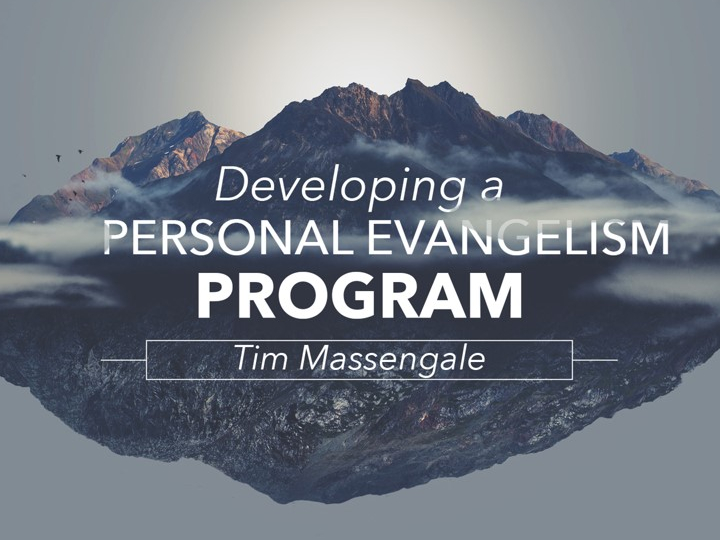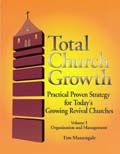By Tim Massengale
What is a church?
Drive up and down the streets of any small mid-western town and before long you will see a steepled structure, be it brick or clap-board, with a sign out front. Elm Street Christian Church, Community Church, and Christian Life Tabernacle, are among the many monikers that may adorn the door. But the church is not a structure built of wood and stone – it uses such structures. Nor is the church an incorporated organization with it’s legal papers on file at the state court house. Nor is the church a prescribed program of three services a week, a Sunday School, and a Bus Ministry. A church uses organization and programs. So what is a church?
The church is people. People who’s lives have been changed. People who are standing for truth, fulfilling the Great Commission, spreading the Good News, and doing the will of their Father. What is a church? A church is people sharing Jesus!
The church has been given a grand and noble commission: “Go ye into all the world, and preach the Gospel . . . ” We are a people with a mission. We have a job to do. But time is running out. What we do must be done quickly. Spread the Word. Win the Lost. He’s coming soon!
Never before has the church needed to place a greater emphasis upon evangelism than today. But new programs are not the answer. Programs are only a means unto an end, not an end unto themselves. They will never work without you and I doing our part – and our part is to witness and share what’s within us with someone else.
We have a treasure in an earthen vessel. We dare not bury it in the ground! We have a light that needs to shine. We dare not hide it under a bushel! Don’t hand me another program. Give me a burning zeal to win the lost! The emphasis must be upon personal evangelism!
You will find today that people will quickly argue with your theology. They will strongly dispute your philosophy. They will also disagree with your interpretation of scripture. But they can’t argue with your personal testimony! They can’t argue that you talked in tongues, that your life has been changed, that you’ve been healed, that you’ve been delivered from drugs and alcohol! They can’t argue with what the Lord has done for you! Your personal testimony is the most powerful tool you have!
It has often been said, “you can lead a horse to water, but you can’t make him drink.” This is true. But what if you made him thirsty? When thirsty, he will drink with great relish! This is the power of the personal testimony. What the Lord has done for us is our “salt” and it makes others thirsty for what you have. We don’t need to declare doctrine to sinners. Indoctrination comes after salvation. We need to share Christ and him crucified! We need to train our people when to witness, where to witness, how to witness and how to give their testimony. We need to provide them with opportunities to witness and motivate them to do so on a consistent basis. How can this be done?
1. Soul winning Training. Saints will only do what you train them to do. If the only example they see is the pastor pounding on the pulpit, screaming fire and judgment – then that is the approach they will use. If the only example they hear is a heavy doctrinal dissertation, replete with the finer details of expository minutiae – then that will be their message too. But if you want them to be soul winners and to effectively reach their “oikos,” they must be taught both the proper approach, as well as the proper message. This is soul winning training.
Saints do not receive this skill upon receiving the Holy Ghost. They received the power and desire to witness, but not the techniques. The way that one goes about witnessing to his or her family and friends is different that the approached used in a church service where the convicting power of God is strong. How our churches would have grown if soul winning training had only been taught to all who first came in! How many well intentioned husbands or wives have perhaps forever ruined their chances of winning their spouse because they, in their emotional zeal, tried to force-feed them the truth! How many friends could have been reached if the new convert had only known what to do or say. The fact that they did not – and perhaps still do not – can be blamed on no one but ourselves.
There are several excellent courses available for teaching your people the right way and approach in witnessing to family, friends, and acquaintances. Check with the Pentecostal Publishing House for what’s currently available.
You can also search the internet, Amazon.com or your local Bible book store for soul winning training courses. Although not Apostolic, they will teach you how to lead someone to repentance which is certainly the first step to leading anyone to God.
The growing church will have at least 60% of their people complete some kind of evangelism training every year. They will schedule such training at the annual planning retreat. To them, it’s important. They make it a priority. They will also place a strong emphasis upon soul winning training in the new convert’s training class.
You see, the growing church knows that true growth is not dependent upon buildings, programs, revivals, or crusades. Instead, it depends upon people winning people, a pattern as old as the book of Acts.
2. Constant Contact Consciousness. If people are going to witness, we must encourage them to do so. We are all creatures of habit. We have good habits, and unfortunately, sometimes bad habits. Witnessing and sharing our testimony must become more than something we do only when told or organized. It must become a good habit – something we almost do automatically without really thinking about it. When the opportunity comes, and the Lord opens the door, we must step through.
How many times have we walked away from somewhere and had the thought strike us, “Oh, but that would have been an excellent time to witness to her and invite her to church!” But now the chance has slipped past – perhaps never to come again. A door was opened, and now it’s closed. The chance was lost – and perhaps a soul also.
If we are going to develop a habit of witnessing, what some call “life-style evangelism,” we must consciously practice and intentionally make an effort. Constant Contact Consciousness is just the ministry to help us do that! Those involved hand in a small report slip each week (see samples at the end of this section). On the slip they place their name and then note the number of times they witnessed for the Lord that week.
Sample CCC Slip
CONSTANT CONTACT CONSCIOUSNESS
Name____________________ Date_______
Number of Contacts Last Week________
“And daily in the temple, and in every house, they ceased not to TEACH and PREACH Jesus Christ”
They may have talked to one, or a dozen, or no one. Regardless the number, the slip is handed in. It becomes a regular weekly reminder that says, “have you talked to anyone? Over the last seven days you probably saw over a hundred different people – did you take the time to talk to any of them about the Lord?” This reminder is usually all that is needed. It hurts to put down a “zero.” Convection grips us. “Next week, I’m going to do better,” you tell yourself. And you will.
It’s a lot like prayer – the more you pray, the more you want to pray. Witnessing is much the same. But you have to get that ball rolling and then keep it rolling. Constant Contact Consciousness (we call it “C.C.C.” for short) gets it rolling. It is an effective, powerful, and productive ministry that anyone can be involved in. It will bring in more visitors, Bible studies, and visitation prospects than any other program. It is also an excellent spiritual thermometer for your church: When people are on fire for God, they witness! The entire ministry, and how it operates, is explained in detail at the end of this section.
3. Saturday Door Knocking. Another excellent opportunity for people to share their testimony is in the door knocking ministries of the church. This may involve going door-to-door with the Enroll-to-Grow program, or the Quest International Research Survey, or it may only be a simple friendly visit to invite neighbors to your special church service, program, drama, or musical. Regardless of the approach, a contact will be made and, hopefully, the opportunity to witness will come up.
Several new approaches to door knocking have given great productivity to this type of outreach. These methods all have a specific service or ministry they offer to each prospect. The ministry is designed to reach the person or family by meeting a particular need. If we can introduce someone to Jesus Christ – who has an answer for every problem and a solution to every need – we have a good chance of getting a Bible Study or having them visit our church.
It is in Acts 2:41-47 that we see the dynamic results of personal evangelism. People gladly received the Word, were baptized, were added to the church, and were instructed. They continued in fellowship, reached out to their community, and grew in numbers daily. This growth, exemplified by the numbers given -120, then 3,000, then 5,000, then finally “multitudes,” (Acts 1:15; 2:42; 4:4; 5:14) – was directly the result of personal one-on-one witnessing. They had no program, no organization, no buildings, none of the advantages we so take for granted today. They simply witnessed.
We have all seen the result of the “each one, reach one” concept. How that if each saint won one person each year, and the persons they won did the same, the entire world would be saved within thirty-three years. The challenge is to do it. And if we did, the “church” could hold the converts, but the church “buildings” could not.
The Holy Ghost is not primarily given for our simple, selfish enjoyment; but instead is primarily given for our active, effectual employment!
– Source Unknown





1 thought on “Developing A Personal Evangelism Program (Entire Article)”
Comments are closed.